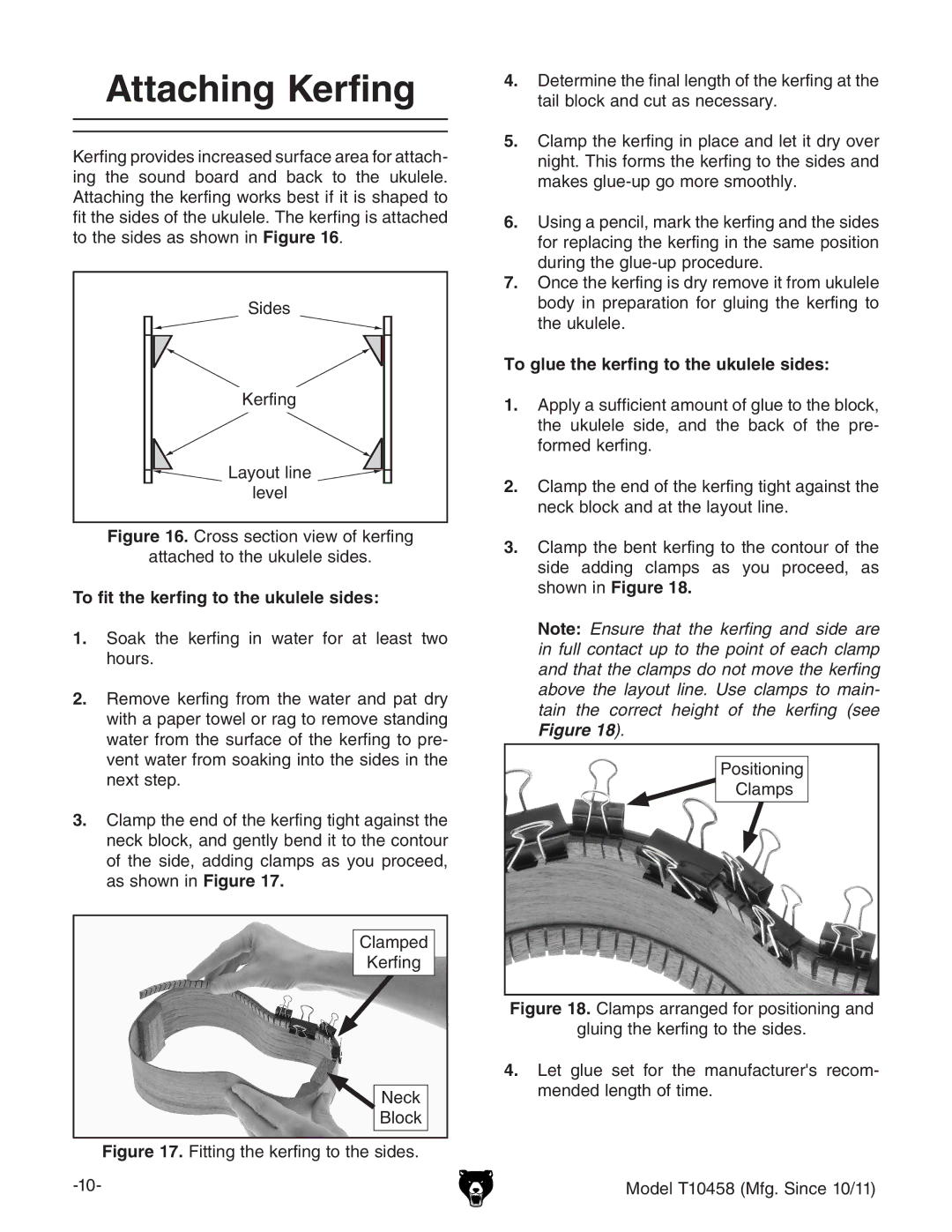
Attaching Kerfing
Kerfing provides increased surface area for attach- ing the sound board and back to the ukulele. Attaching the kerfing works best if it is shaped to fit the sides of the ukulele. The kerfing is attached to the sides as shown in Figure 16.
Sides
Kerfing
Layout line
level
Figure 16. Cross section view of kerfing
attached to the ukulele sides.
To fit the kerfing to the ukulele sides:
1.Soak the kerfing in water for at least two hours.
2.Remove kerfing from the water and pat dry with a paper towel or rag to remove standing water from the surface of the kerfing to pre- vent water from soaking into the sides in the next step.
3.Clamp the end of the kerfing tight against the neck block, and gently bend it to the contour of the side, adding clamps as you proceed, as shown in Figure 17.
Clamped
Kerfing
Neck
Block
Figure 17. Fitting the kerfing to the sides.
4.Determine the final length of the kerfing at the tail block and cut as necessary.
5.Clamp the kerfing in place and let it dry over night. This forms the kerfing to the sides and makes glue-up go more smoothly.
6.Using a pencil, mark the kerfing and the sides for replacing the kerfing in the same position during the glue-up procedure.
7.Once the kerfing is dry remove it from ukulele body in preparation for gluing the kerfing to the ukulele.
To glue the kerfing to the ukulele sides:
1.Apply a sufficient amount of glue to the block, the ukulele side, and the back of the pre- formed kerfing.
2.Clamp the end of the kerfing tight against the neck block and at the layout line.
3.Clamp the bent kerfing to the contour of the side adding clamps as you proceed, as shown in Figure 18.
Note: Ensure that the kerfing and side are in full contact up to the point of each clamp and that the clamps do not move the kerfing above the layout line. Use clamps to main- tain the correct height of the kerfing (see Figure 18).
Positioning
Clamps
